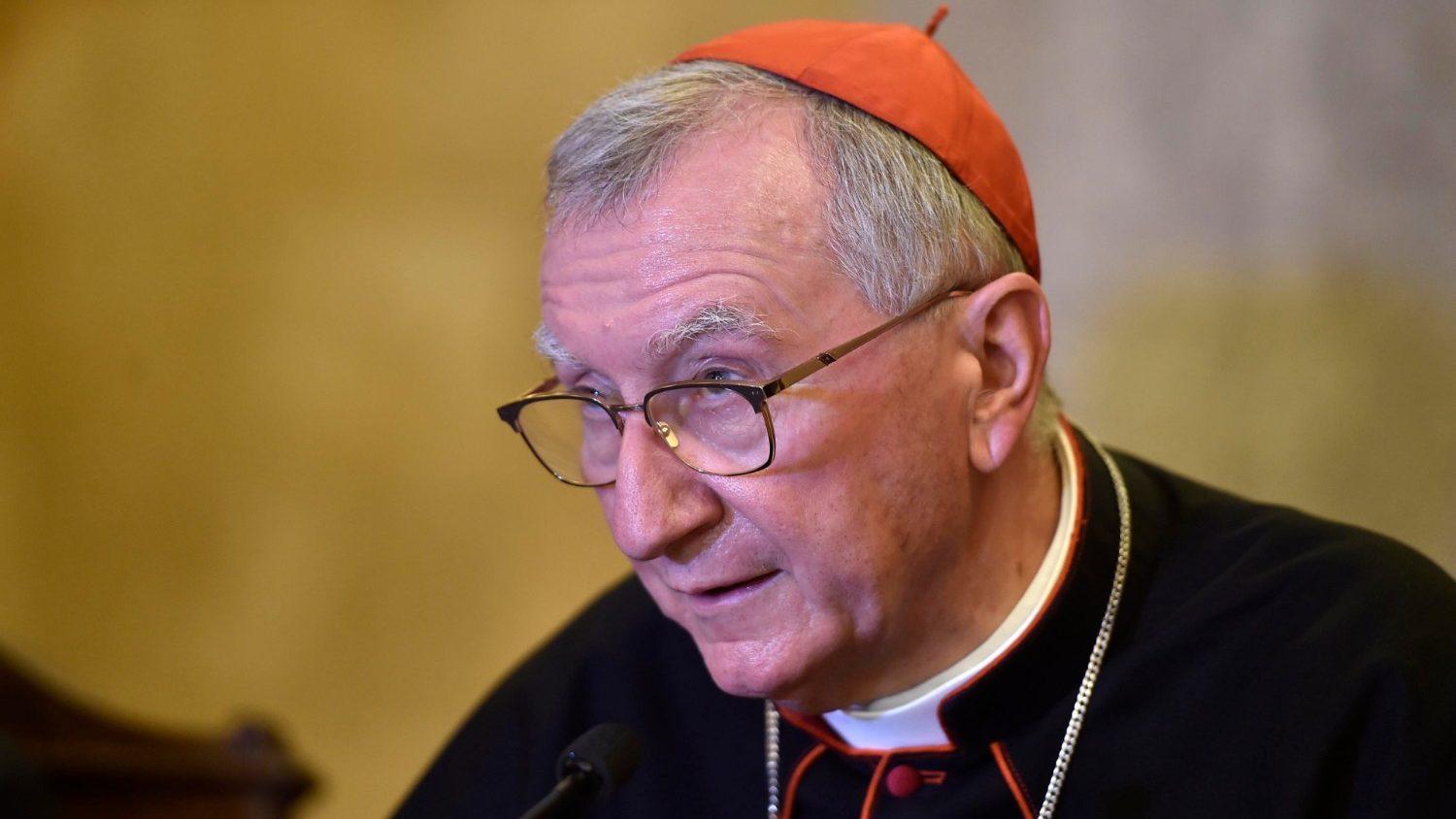ROME – Pope Francis has decided to recognize the transfer of a bishop in China earlier this year without his knowledge or approval, the Vatican announced Saturday, despite the fact that it violates the terms of a 2018 provisional agreement on episcopal appointments.
In an interview accompanying the announcement, Vatican Secretary of State Italian Cardinal Pietro Parolin used the occasion to suggest that a “stable liaison office” between the Holy See and China be opened, saying such a move would be “extremely helpful” for ongoing dialogue. It was one of Parolin’s strongest statements to date about the idea of launching formal diplomatic relations.
So far this year, Chinese authorities have twice violated the terms of the controversial 2018 agreement, with the latest being their decision in April to transfer Bishop Shen Bin of the nearby Diocese of Haimen (Jiangsu) to the Diocese of Shanghai, which had been vacant for 10 years, without prior the Vatican’s prior knowledge or approval.
Last fall a similar incident occurred when in November Bishop John Peng Weizhao was installed as an auxiliary bishop for the Diocese of Jiangxi, an ecclesiastic territory recognized by Chinese authorities, but not by the Vatican.
Peng Weizhao was appointed to the papally-recognized Diocese of Yujiang by Pope Francis in 2014, four years before the 2018 agreement. Considered an “underground” prelate not recognized by authorities, Peng Weizhao was arrested and held for six months before being released under strict observation.
Yet on Nov. 24, he joined several state-sanctioned organizations in a ceremony marking his installation as auxiliary for the non-papally recognized Diocese of Jiangxi. The Vatican at the time issued a rare public condemnation of Peng Weizhao’s installation, though until today they had not commented on Shen Bin’s transfer.
Saturday’s statement on Shanghai said nothing about Peng Weizhao or the situation in the Diocese of Jiangxi.
RELATED: Vatican mum on Chinese bishop’s transfer without approval
In an interview with Vatican News, the Vatican’s official state-run media platform, Parolin said the reason the Vatican waited so long to make any public comment on the Shanghai situation was in order to “carefully evaluate” both the pastoral situation of the Diocese of Shanghai, “which had been without a bishop for too long,” and the decision itself by the Chinese to transfer Shen Bin.
Parolin said the transfer of Shen Bin and Peng Weizhao without the Holy See’s knowledge or approval “does not seem to take into account the spirit of dialogue and collaboration” established in the 2018 provisional agreement.
Ultimately, he said, Pope Francis decided to accept the transfer of Shen Bin to Shanghai “in view of the greater good of the diocese and the fruitful exercise” of his ministry as bishop.
Francis’s intention, Parolin said, “is fundamentally pastoral, and will allow Archbishop Shen Bin to work with greater serenity to promote evangelization and [to] foster ecclesial communion.”
Parolin also voiced hope that Shen Bin will be able to work with authorities to reach a “wise solution” to other problematic issues, including the impediment of the archdiocese’s auxiliary bishops to do their work, as well as to clarify the status of Peng Weizhao’s predecessor, Archbishop Joseph Xing Wehzhi.
Asked about the terms of the 2018 agreement, which have never been made public, Parolin said they remain confidential “because it has not yet been definitively approved.”
However, he said the terms revolve around “the fundamental principle of the consensus of decisions concerning bishops.” Should new or unforeseen situations arise, “it will be a question of trying to resolve them in good faith and with foresight.”
In terms of whether he expects other violations to be made in the future, Parolin noted that the transfer of a bishop from one diocese to another is not a canonical novelty, but a common practice. The problem, he said, is “if we proceeded in a non-consensual way.”
A correct application of the 2018 agreement, he said, “allows this difficulty to be avoided.”
Parolin also pointed to other urgent issues that must be addressed, such as the need for a common and united episcopal conference, a consistent communication between bishops and the pope, and the work of evangelization.
“The Holy See wishes to see the responsibility of the bishops grow in leading the church in China,” he said, saying that to do this a bishops’ conference is adequate statutes is necessary.
This requires a stable communication between bishops and Rome, “knowing that all of this belongs to the structure and doctrine of the Catholic Church, which Chinese authorities have always said they do not want to alter,” Parolin said.
He insisted that “too many suspicions” can “slow down and hinder” the work of evangelization and dialogue, insisting that Catholics belonging to the so-called ‘clandestine’ church in China “deserve trust,” as they wish to be loyal citizens and to also be respected “in their conscience and in their faith.”
In terms of what the future holds, Parolin said Catholics generally, not just those in China, “have the right to be adequately informed” of what is happening, and he voiced hope that his words “help to clarify and resolve difficulties.”
Problems will always exist, but if dialogue can grow in both truth and in mutual respect, it can bear much fruit, Parolin said.
To this end, he notably suggested that a “stable liaison office” be opened between China and the Holy See, saying it would be “extremely useful.”
“I take the liberty of adding that, in my opinion, such a presence would not only favor dialogue with civil authorities, but would also contribute to the full reconciliation within the Chinese church and its journey toward a desirable normality.”
Right now is a crucial moment for the implementation of the deal, Parolin said, saying “we need the goodwill, consensus, and collaboration that allowed us to enter into this far-sighted pact! The Holy See is determined to do its part so that the journey continues.”
Follow Elise Ann Allen on Twitter: @eliseannallen












